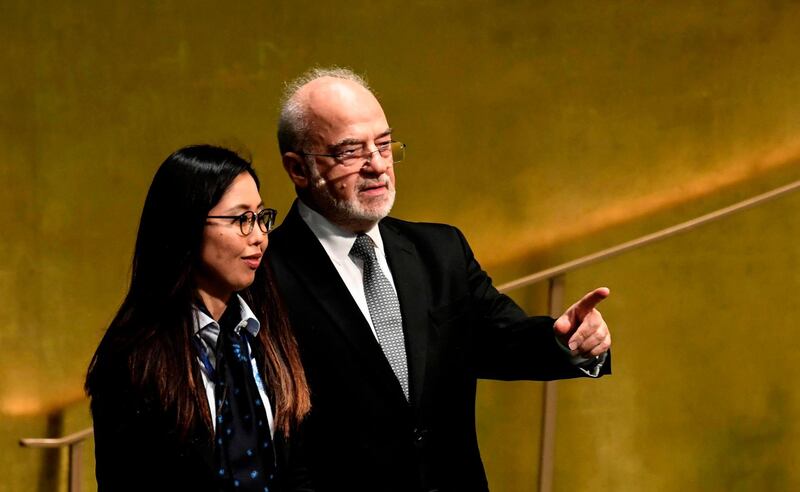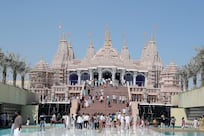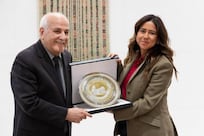Iraqi Minister for Foreign Affairs Ibrahim Al Jafari laid out a strong critique of Turkey at the UN on Friday, calling on Ankara to remove troops stationed in the country and to cease damming the Tigris river.
With Iraq still forming a new government nearly four months after a general election, Mr Jafari is unsure if he will return to his position as minister.
In his address to the UN General Assembly, Mr Jaafari also defended Iran, implying widespread criticism of the country is an attempt to undermine their stability.
The Iraqi foreign minister called for a political solution in Yemen and Syria, using progress in North Korea as a guiding example of diplomatic success.
In a stern warning Turkey to remove troops from a military base northeast of Mosul established in 2015, nominally used to fight ISIS, Mr Jafari rejected the "violation of Iraqi sovereignty."
"We categorically reject the presence of Turkish forces in Bashiqa," he said referring to the camp, which has been a source of diplomatic tension between Baghdad and Ankara. "We call on Turkey to take a clear stance on these violations, recognise them as violations and put an end to them."
The Iraqi Foreign Minister continued criticism of the damming of the Tigris river in Turkey, which has led to water shortages, polluting water threatening animal and plant life, particularly around Baghdad where waters were so low residents could wade through them.
"We also call for a restoration to Iraq of our water resources, because the loss of these resources has reduced the level in the Tigris and Euphrates rivers, the water level which has led to an adverse environmental and economic impact which will have serious repercussions for the future," he said.
The damming of the river has also flooded ancient caves used by early Mesopotamian civilisations, symbolism evoked by Mr Jafari in what he called their duty to human civilisation.
The Iraqi foreign minister rebuked Israel's indication it could attack suspected Iranian military assets in Iraq and denounced the sustained criticism its neighbours, which include Iran, have received at the General Assembly.
"We reject any attempt to use the United Nations podium before the general assembly to undermine the stability of any country. We have worked very hard recently to build relationships with all our neighbouring countries," Mr Jafari said.
"We have not joined in with any of the international coalitions, choosing instead to stand alone as a bridge between nations of different views."
In line with other countries in the Middle East, Mr Jafari criticised US President Trump's decision to recognise Jerusalem as the capital and called for a two-state solution.
Much of his address consisted of contrasting the state of Iraq today, to the chaos under ISIS. Mr Jafari thanked the United Nations for their support, calling for states to follow through on money pledged to rebuild the country in Kuwait.
"Iraq will never forget all those who stood shoulder to shoulder with them at this bloody and dark hour," Mr Jafari said.
_______________
Read more:
UAE minister of state for foreign affairs holds talks with US envoy for Syria
Emirates Red Crescent provides aid to Yemen's remote areas





